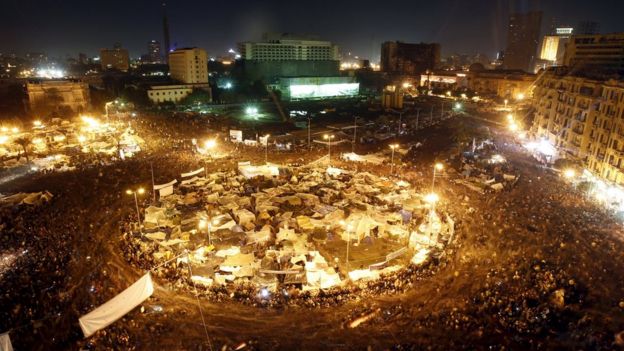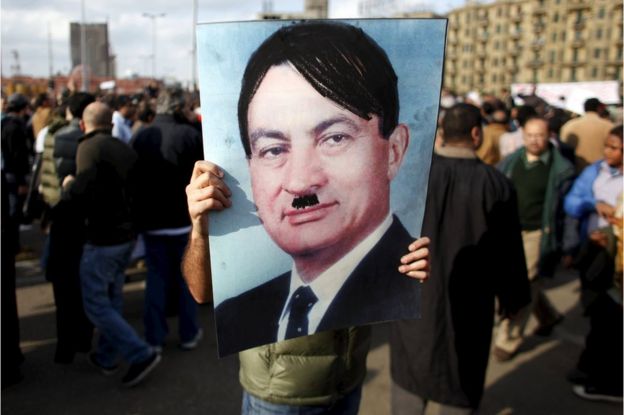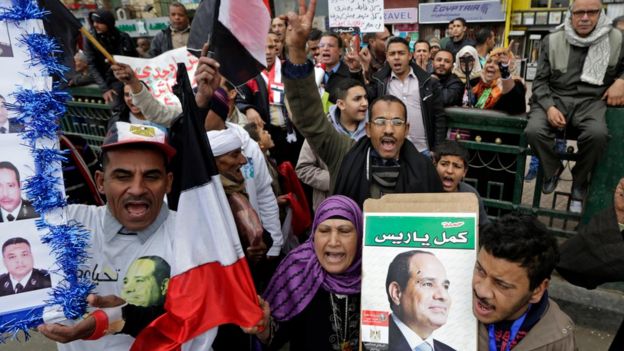Security has been stepped up in the Egyptian capital, Cairo, on the fifth anniversary of the start of the uprising that toppled Hosni Mubarak.
Police are deployed near Tahrir Square, the symbolic centre of the uprising.
Thousands of homes have been raided, as the authorities look for people who might be planning protests against President Abdul Fattah al-Sisi.
Local and international human rights activists say the situation in the country has never been worse.
Mr Sisi led the military's overthrow of Mubarak's Islamist successor, Mohammed Morsi, in 2013 following mass protests.
Since then, more than 1,000 people have been killed and 40,000 are believed to have been jailed in a sweeping crackdown on dissent.
Most of them have been supporters of the outlawed Muslim Brotherhood, but secular activists have also been prosecuted for breaking an anti-protest law.
'Reverting to police state'
There is little trace of the revolution that swept an autocrat from power five years ago, and Egypt's latest strongman is keen to keep it that way, reports the BBC's Orla Guerin in Cairo.
 Reuters
Reuters Reuters
Reuters
Mr Sisi, a retired field marshal who was elected president in 2014, has vowed that there will be a firm response to any unrest on the anniversary.
"The security and stability of nations are not to be toyed with," he said in a speech over the weekend at a ceremony marking Police Day, which also falls on Monday.
Our correspondent says protests are already virtually banned. And in recent days police have raided about 5,000 homes in central Cairo, looking for anyone who might be planning to take to the streets.
Some activists have been arrested, others driven into hiding. Many icons of the revolution are already behind bars, our correspondent adds.
An interior ministry official told the AFP news agency that the raids were not aimed at "squeezing the youths but avoiding chaos and infiltration of rioters among them".
The Muslim Brotherhood has called for protests on Monday.
 AP
AP
But one leading activist told the BBC that he and many others would be staying home, rather than trying to return to Tahrir Square.
"People who protest are going to pay with their lives for, or be sentenced to over 20 years in jail," he said. "The price is too high."
Amnesty International warned on Sunday that Egypt was now "mired in a human rights crisis of huge proportions", as the country "reverts back to a police state".
"Peaceful protesters, politicians and journalists have borne the brunt of a ruthless campaign against legitimate dissent by the government and state security forces," said Said Boumedouha, the group's deputy Middle East and North Africa director.
"Tens of thousands have been arrested and the country's prisons are now overflowing, with widespread reports of torture and hundreds held without charge or trial," Mr Boumedouha added



No comments:
Post a Comment